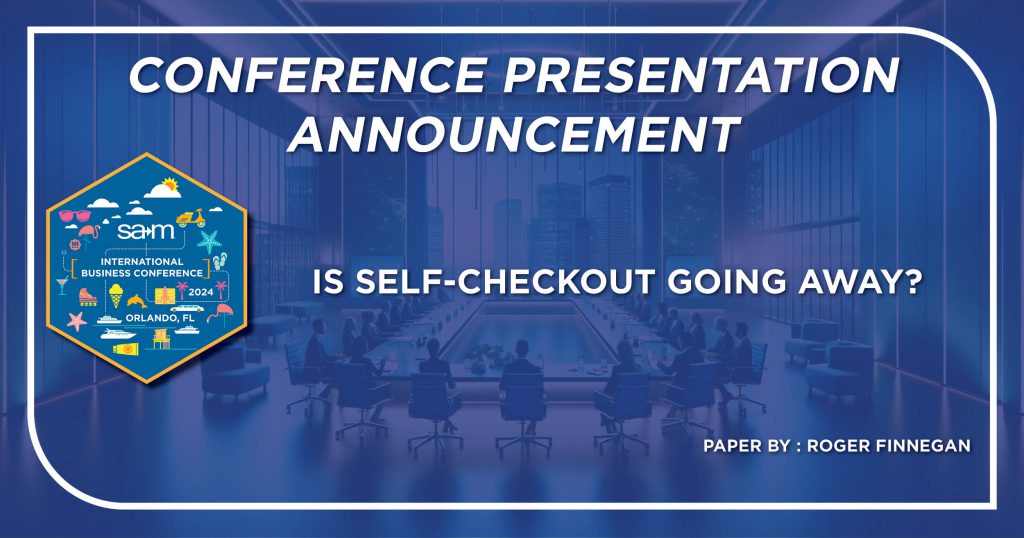
The programming committee for the 79th Annual SAM International Business Conference is pleased to announce the acceptance of the presentation, Is Self-Checkout Going Away? by Roger Finnegan.
In the rapidly evolving landscape of retail operations, a groundbreaking academic paper has emerged, shedding light on a pivotal shift in the strategies of major corporations towards self-service checkouts. This insightful research, soon to be presented at the prestigious SAM International Business Conference, delves into the reconsideration by industry giants such as Walmart, Costco, Wegmans in the United States, and Booths in the United Kingdom, of their approach towards self-checkout systems. Initially heralded as a technological advancement aimed at reducing labor costs since their introduction in the 1980s, self-service checkouts have become a ubiquitous feature in stores across the globe. However, recent developments indicate a significant transformation in corporate perspectives.
The research meticulously outlines the reasons prompting these companies to reevaluate the deployment of self-service checkouts. A notable increase in inventory shrinkage, with rates soaring to double the industry average, has been identified as a critical concern. This issue not only affects the bottom line but also reflects the challenges in maintaining inventory accuracy and preventing theft—a problem that traditional checkout methods managed more effectively. Additionally, the paper highlights an underlying issue of customer frustration, which has become increasingly prevalent. The dissatisfaction among consumers stems from their experiences with self-service checkouts, pointing towards a desire for a more personalized and human-centric shopping experience. This sentiment is further corroborated by a 2022 survey conducted by the Feedback Group, revealing that a majority of shoppers, 54% to be precise, exhibit a preference for transactions conducted with human cashiers over self-checkout machines.
The implications of these findings are profound, suggesting that what was once considered an innovative solution to operational efficiency and cost reduction may not align with the evolving expectations of consumers and the operational realities of retail businesses. The paper’s presentation at the SAM International Business Conference is eagerly anticipated, as it promises to spark significant discussions among business leaders, scholars, and practitioners about the future of retail operations, customer satisfaction, and technological adoption. This research not only challenges the prevailing narrative about the efficacy of self-service technologies in retail but also opens up a dialogue on how businesses can adapt to meet the changing needs and preferences of their customers in an era marked by rapid technological change.
The upcoming presentation at the conference is set to offer a comprehensive analysis of the factors leading to the reassessment of self-checkout systems and will likely serve as a catalyst for further research and debate on optimizing customer service and operational efficiency in the retail sector. As companies continue to navigate the complexities of technological integration and customer engagement, the insights from this paper will undoubtedly play a crucial role in shaping the strategies of retail operations in the years to come.
Join us online or in person at SAMIBC 2024 and see this great presentation and many more March 19 – March 23, 2024. For registration information visit www.samnational.org/conference.
